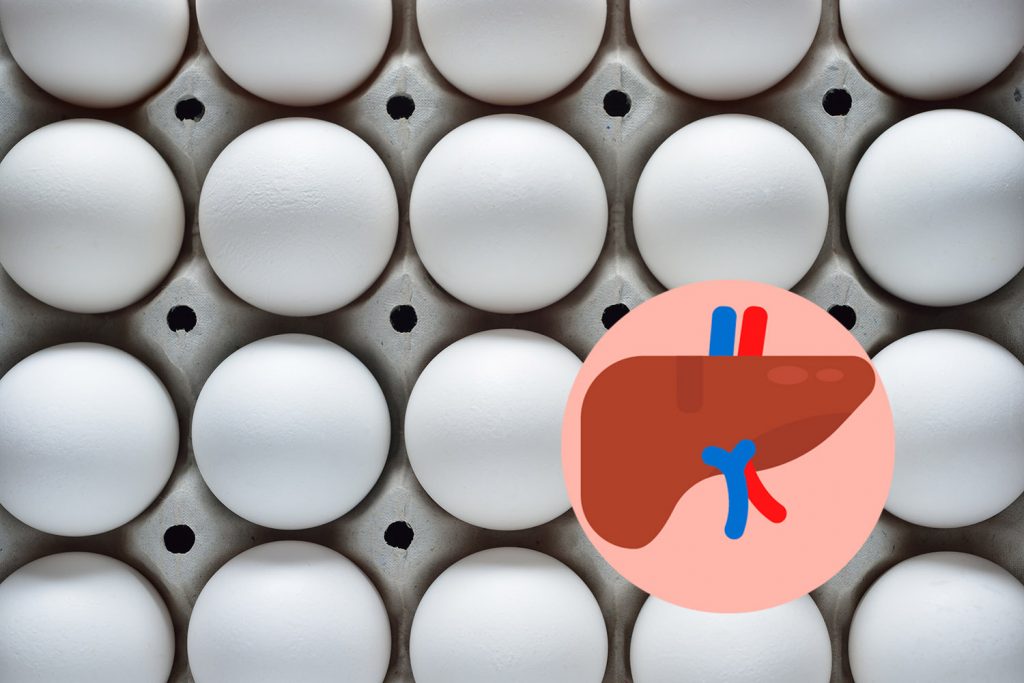08 Nov Factors affecting liver health in layers and breeders

In a previous article, we explained why a well-functioning liver is key for the productivity of layers and breeders. In this blog, we make a list of the main factors impairing liver health.
Nutritional origin
- High energy diets with a high calorie/protein ratio, that lead to fatty liver disease. We made a video explaining the reasons and consequences of fatty liver that can be watched here.
- A deficiency of choline. methionine or biotin is also related to lesions in the liver.
- Heated and oxidized fats contain peroxidation compounds can cause oxidative damage on the hepatic tissues. At necropsy, the liver looks fatty. It is necessary to avoid the use of rancid fats. PhytoShield© can be given to animals as a source of natural antioxidants.
- When there is an overdose of selenium, massive hemorrhages in the liver can be observed.
Toxins
- Mycotoxins, especially aflatoxins, are toxic to the hepatic tissues. The appearance of the affected liver depends on the age of the animal: in young birds, the liver is fibrous and hard, in older animals, mycotoxins lead to fatty liver disease. At necropsy, the liver also may be pale and friable. The routine use of a mycotoxin binder such as PlusBind© is advised.
- Heavy metals, certain pharmaceutical products, and other harmful substances are also toxic to the hepatic tissues.
Infections
- During coli septicemia, the liver has a greenish shade, and it is mottled with many small necrotic foci.
- Greyish-whitish nodes are a sign of an infection by Salmonella enterica Pullorum (Pullorum disease). When the infection is caused by Salmonella enterica Gallinarum (Fowl typhoid), the liver is enlarged and greenish, sometimes mottled with multiple necrotic points.
- During acute cases of necrotic enteritis, the liver appears congested, with a black or dark red color.
- When the bird is affected by viral inclusion body hepatitis, the liver is enlarged, with yellowish color and crumbly texture.
- Layers and breeders affected by hepatitis-splenomegaly (HS) syndrome, caused by avian hepatitis E virus, show enlarged livers.
- Other microorganisms that can cause infections in the liver are Pseudomonas aeruginosa, Campylobacter, Pasteurella multocida, Staphylococcus aureus, Streptococcus sp., Clostridium colinum, spirochetes, Marek’s disease virus, Histomonas, etc.
Management /environment
- In birds affected by ascites, the liver shows increased blood circulation and possible hemorrhages.
- Heat stress is one of the factors predisposing to fatty liver disease.
- If birds do not fast for 12 h or more before slaughter, the color of the liver may appear abnormally light.
Products of choice
PhytoMax© is a combination of vitamins, chelated calcium, microminerals and essential oils to be given through drinking water. It is intended for layers and breeders to:
- Maintain the levels of calcium and magnesium needed for optimal egg production.
- Reinforce skeletal health.
- Prevent cage fatigue.
- Stimulate the hepatic metabolism and the immune system.
- Improve the quality of the egg and the health of day-old chicks.
- Avoid the drop of the laying rate produced by stress (management, vaccines, hot weather, etc…)
- At the start of the laying period, to boost productivity.
- Prolong the productive life of the hen.
PhytoLiv© is an oral emulsion that contains essential oils, bioactives and vitamins with high antioxidant power. PhytoLiv© is especially useful in the following cases:
- In birds at risk of liver diseases, such as fatty liver, toxins or infections.
- To counteract the negative effects of feeding with oxidized fats or feed contaminated with mycotoxins and heavy metals.
- Before, during or after periods of stress, such as heat stress, vaccination, stressful management practices, diseases, etc
- To improve the taste, color and shelf life of meat and eggs; to increase eggshell quality whenever eggshell defects are related to poor liver function.
- To improve sperm quality and hatchability in breeders.
- To enhance growth, productivity, and efficiency.
PlusBind© is a mixture of carefully selected silicates intended for the prevention of diseases and productivity losses related to the presence of all types of mycotoxins. It is indicated in poultry, pigs, aquaculture and ruminants.
The silicates present in PlusBind© have a highly expandable molecular structure. This characteristic gives the product a wide surface available for the adsorption of mycotoxins and therefore allows a high effectiveness at lower doses (0.5-1 kg per ton of feed).
PlusBreathe© contains essential oils with natural antiseptic, antioxidant, expectorant and mucolytic activity. It has a refreshing taste.
It is indicated to improve the functioning of the respiratory system and to mitigate heat stress in birds, ruminants, pigs and rabbits of all ages. It can also be nebulized in the farm environment.
PhytoShield© is an oral emulsion that contains essential oils, electrolytes and vitamins intended to promote growth, reduce oxidative stress, and keep the animals hydrated.

Certain health statements may not be applicable in your region.

